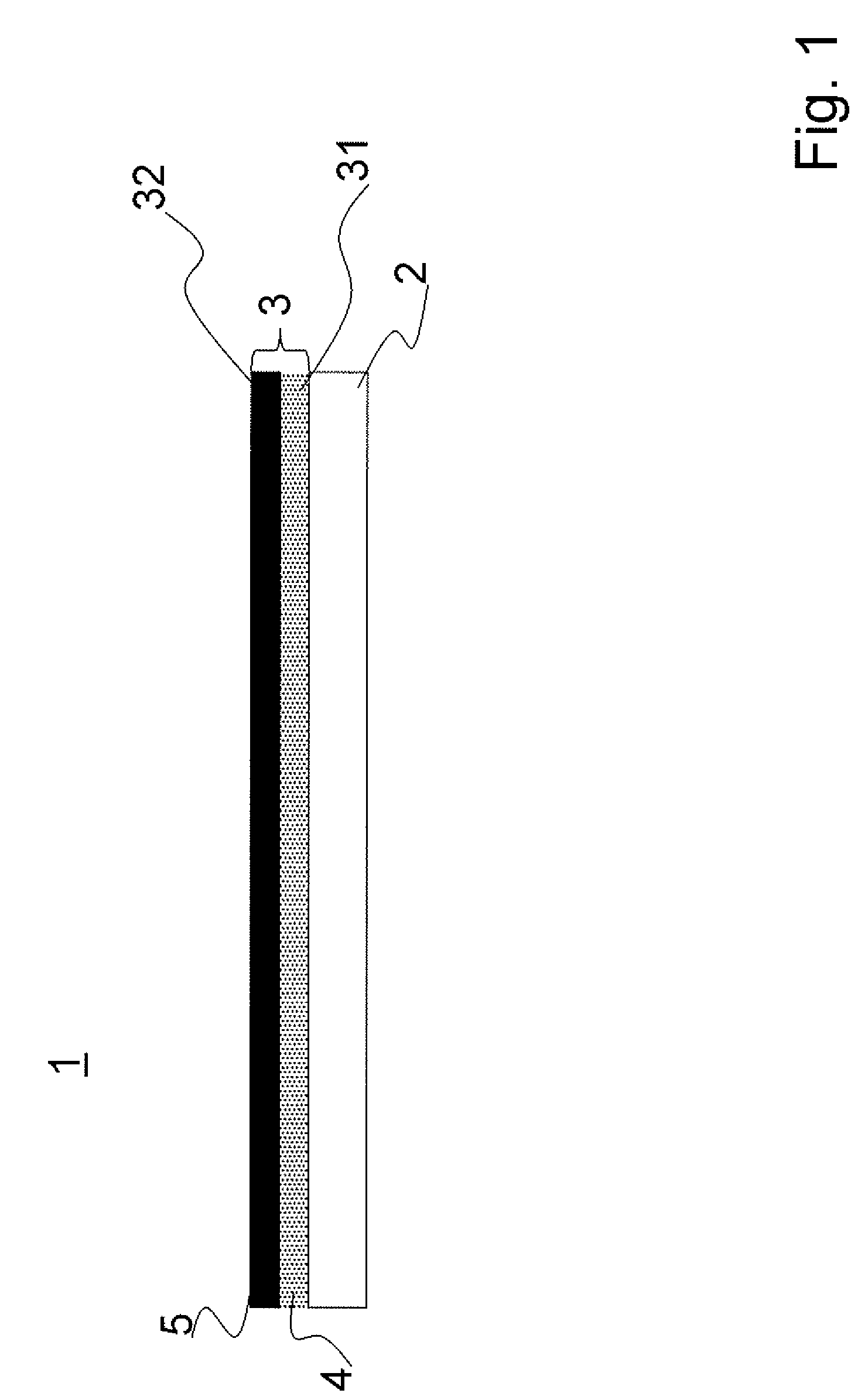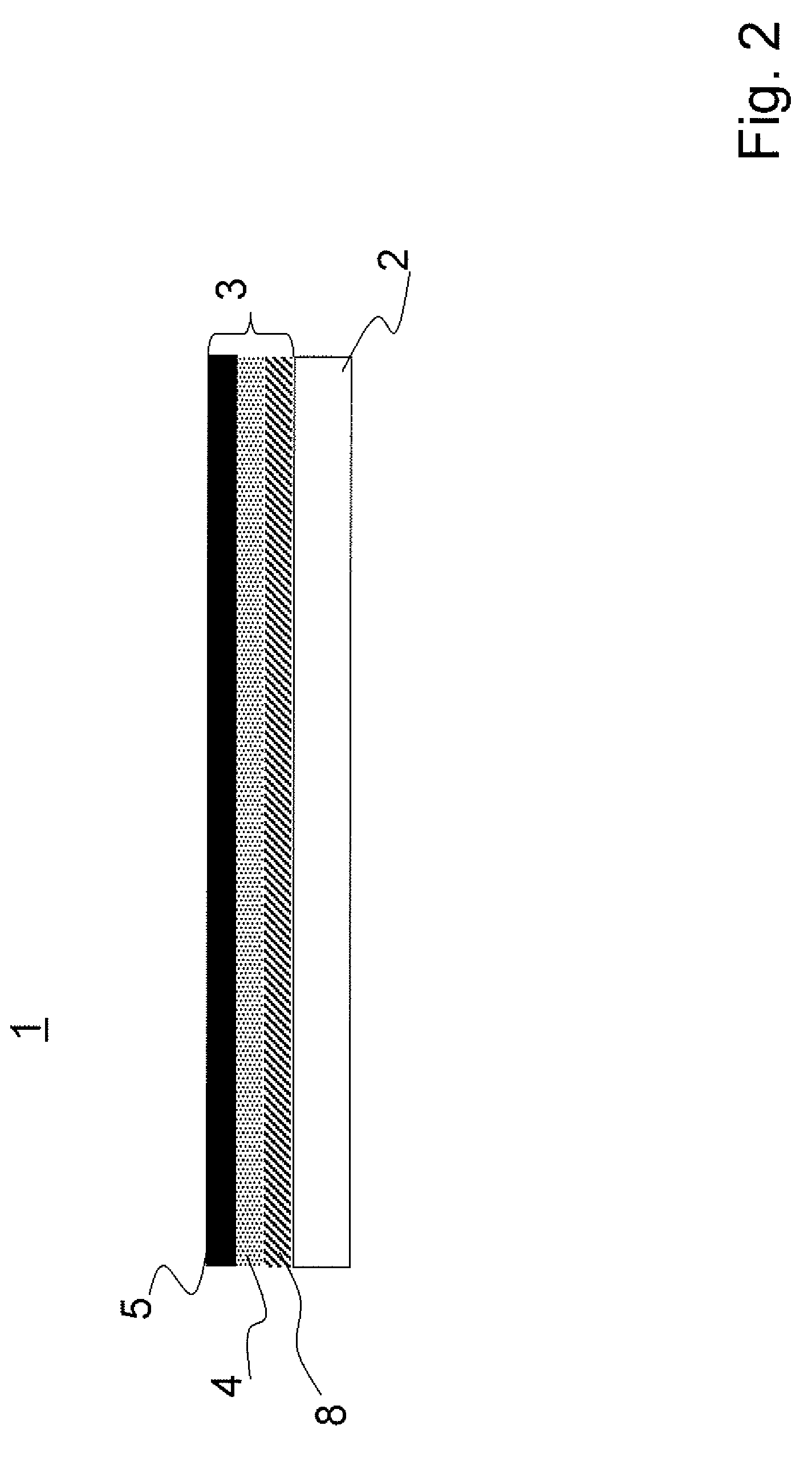PICVD coating for plastic containers
a plastic container and composite material technology, applied in the field of plastic containers, can solve the problems of not showing gas barrier properties, shortening the shelf life of beverages stored in those containers, and cvd coating, and high temperature, and not being suitable for coating the plastic surfa
- Summary
- Abstract
- Description
- Claims
- Application Information
AI Technical Summary
Benefits of technology
Problems solved by technology
Method used
Image
Examples
Embodiment Construction
[0047]As shown in FIG. 1, the composite material 1 comprises a substrate 2 and a coating 3. The coating 3 has a first region 31 which faces the substrate 2, and a second region 32 which faces away from the substrate 2. The coating 3 comprises a barrier layer 4 and a passivation layer 5 as a top coat. The barrier layer suppresses the exchange in matter between the surroundings of the substrate 2 which, in the representation of FIG. 1, corresponds to the region below the substrate 2, and a medium being in contact with the composite material 1, such as the substances to be kept within the container made up of the composite material of the invention. In FIG. 1, this medium is above and in contact with the passivation layer 5. The passivation layer 5 protects the barrier layer 4 against corrosion by this medium.
[0048]According to a further embodiment of the invention, the coating 3 may comprise a bonding layer or adhesion promoting layer 8 in addition to the barrier layer 4 and the passi...
PUM
| Property | Measurement | Unit |
|---|---|---|
| temperature | aaaaa | aaaaa |
| temperature | aaaaa | aaaaa |
| ATR | aaaaa | aaaaa |
Abstract
Description
Claims
Application Information
 Login to View More
Login to View More - R&D
- Intellectual Property
- Life Sciences
- Materials
- Tech Scout
- Unparalleled Data Quality
- Higher Quality Content
- 60% Fewer Hallucinations
Browse by: Latest US Patents, China's latest patents, Technical Efficacy Thesaurus, Application Domain, Technology Topic, Popular Technical Reports.
© 2025 PatSnap. All rights reserved.Legal|Privacy policy|Modern Slavery Act Transparency Statement|Sitemap|About US| Contact US: help@patsnap.com



